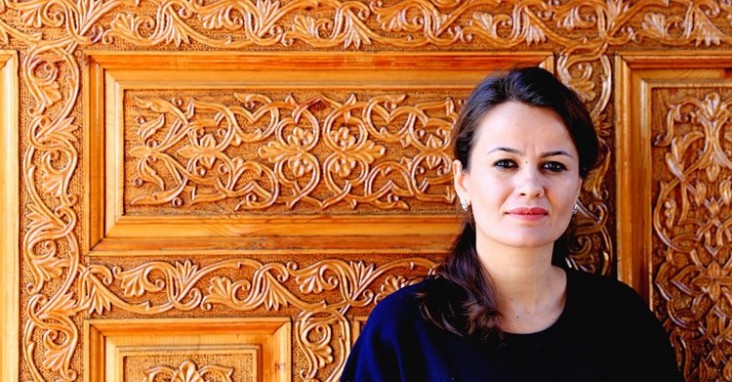Speeches Shim

Hissar is a city in Western Tajikistan, about 15 km from Dushanbe, the country’s capital. The Hanaka River flows through the city, and the main attraction is the legendary Hissar fortress, through which the caravans of the Great Silk Road passed.
Takhmina’s parents insisted that she marry her cousin. After the wedding they rarely saw each other, since her husband was a seasonal labor migrant in Russia and only visited Tajikistan once a year.
Sadly, Takhmina’s child was diagnosed with leukemia at age two and died soon after.
Not long after that her husband died of AIDS. That’s when Takhmina found out that she had HIV.
“The doctor gave me lots of books on HIV infection. He also introduced me to consultants from organizations for people living with HIV.”
Takhmina started antiretroviral therapy (HIV-infection treatment) which is free of charge in the Republic of Tajikistan. Since starting treatment, her viral load has decreased to an undetectable level which means that she cannot transmit HIV to others.
Takhmina is open about her status, which is unusual for women living with HIV in Tajikistan. She would like to help other people living with HIV find out their status and live fulfilling lives on treatment. There are almost 4,500 women living with HIV today in Tajikistan, and Takhmina’s example serves as hope and inspiration for others.
“I was not afraid to be open about my status. It has helped me to work with women living with HIV without fear and helped to promote their interests in Tajikistan as they faced the same problem as me,” she says.
“Stigma and discrimination against women living with HIV can have devastating consequences. It can stop them accessing the health services they need, tear families apart and profoundly affect their ability to live a normal life,” says Takhmina.
“There is a stereotype that if woman is HIV-positive, it means she is a sex worker. And so, to overcome this stereotype, we created an organization, Tajik Network of Women Living with HIV.
As the Director of the Tajik Network of Women Living with HIV, Takhmina defends the interests of women living with HIV in Tajikistan, helping them overcome barriers to starting treatment. In her opinion, the main difficulties are condemnation and mistrust from loved ones, as well as incorrect information and myths about HIV. Her organization, Tajik Network of Women Living with HIV, operates in several cities across the country with the assistance of the USAID Central Asia HIV Flagship activity.
Takhmina has a new family now. She is loved and happy with her husband. He does not have HIV and they are planning to have a baby. They believe that they will have a long, healthy and happy future together, something which is very possible as the result of access to HIV care and treatment.
The USAID Central Asia HIV Flagship activity works through community-led NGOs to help implement the national HIV programs in Tajikistan, the Kyrgyz Republic, and Kazakhstan to reduce new HIV infections and HIV-related deaths.

Comment
Make a general inquiry or suggest an improvement.